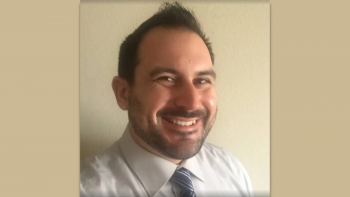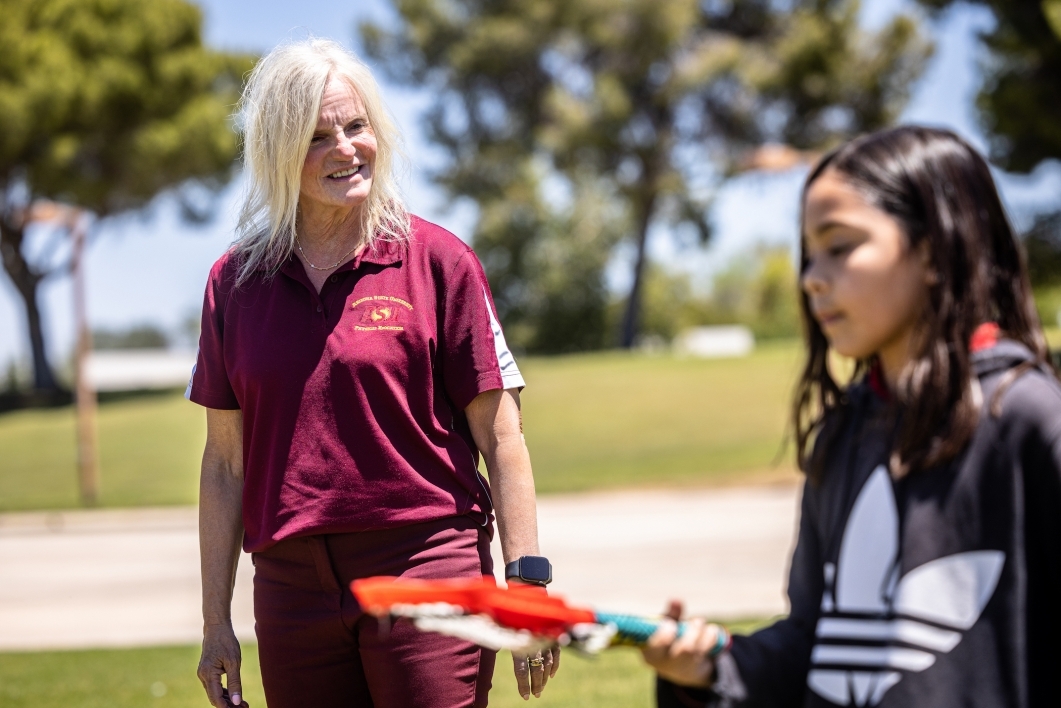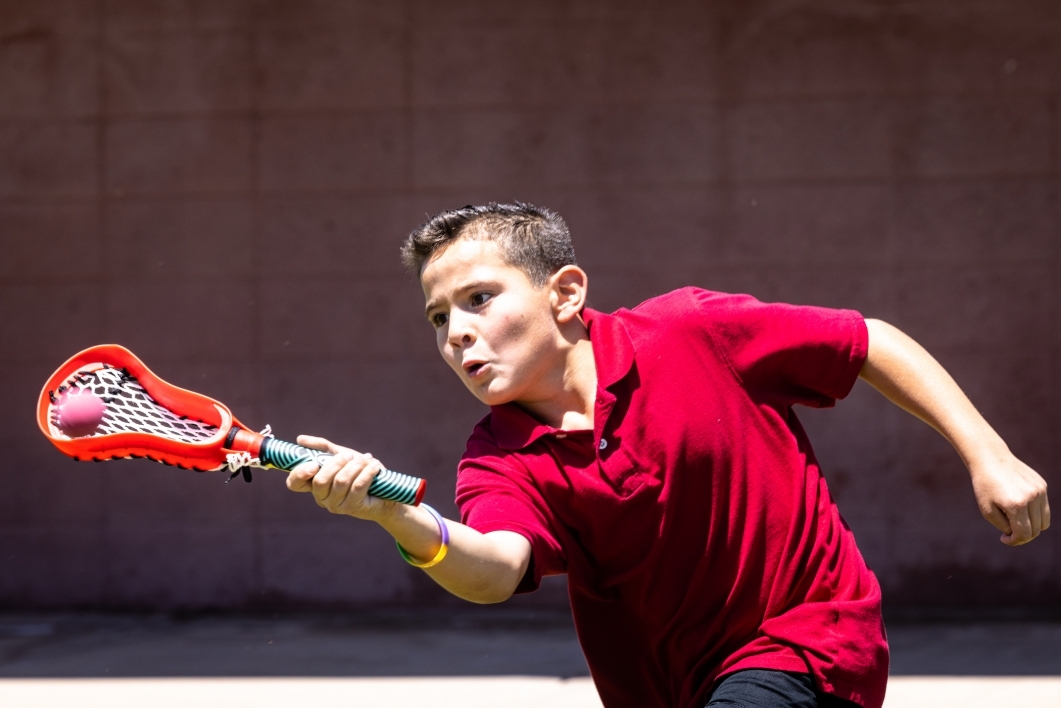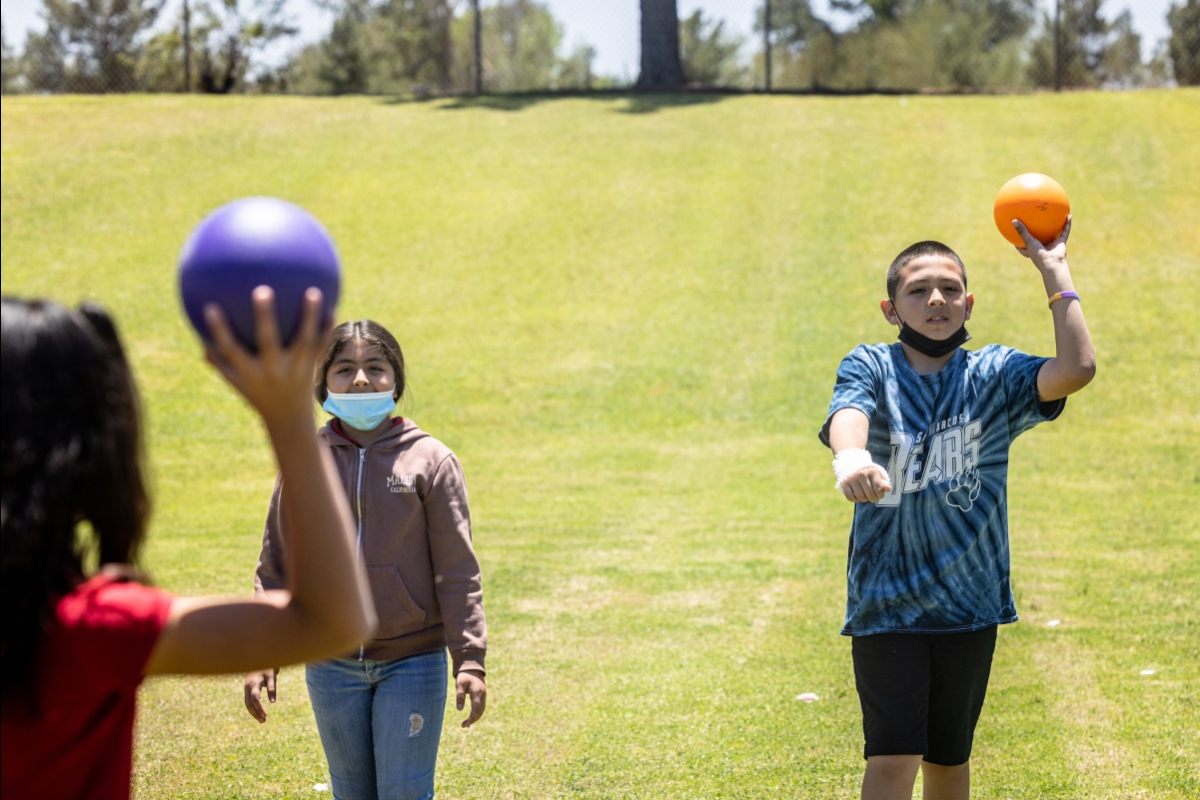The traditional on-ground college experience didn’t bring out the best learner in Richard Borden. In fact, he says that during his last degree program he “scooted by.”
Understandably, Borden’s expectations were measured when he decided to return to college to advance his career. This time he intentionally sought out online programs to accommodate his full-time job and family life.  Richard Borden found the exact program he was looking for at ASU’s Edson College to help him advance his career. Download Full Image
Richard Borden found the exact program he was looking for at ASU’s Edson College to help him advance his career. Download Full Image
“I work in a hospital setting, in a pseudo-compliance capacity. I saw that ASU had this very specific degree which was right up my alley and exactly what I want to go into as I have a desire to become a compliance officer eventually,” said Borden.
That degree was the health care compliance and regulations, BS from Arizona State University’s Edson College of Nursing and Health Innovation. He enrolled via ASU Online and started taking classes right away. Not only was the program exactly what he was looking for in terms of content, but the flexibility the online format provided helped him excel.
“Being able to work at my own pace — and quite honestly my pace is pretty accelerated when I can determine when I work — I was able to immerse myself in the textbooks to really understand the material, and usually that time was between 10 p.m. and 2 a.m. That window typically doesn’t work well for traditional on-campus classes,” Borden said.
In December 2021, he graduated summa cum laude. But even before he finished the program, Borden was applying what he was learning in real time to his job.
For example, he took the knowledge gained from a course that covered OSHA, the Occupational Safety and Health Administration, and was able to share that information with his superiors.
“We actually use a form that I created for one of my courses as a template. I was able to draw from the different courses and was able to produce this robust document, and it’s actually a form that we’re using now for all investigations,” he said.
The learning didn’t stop for Borden after graduation.
Part of the reason he chose ASU’s program was that it’s accredited by the Health Care Compliance Association. A big part of the focus of the health care compliance and regulations degree is preparing students to take the Certification in Health Care Compliance exam to become certified. It’s a credential that helps compliance professionals stand out, alerting the industry to their skills and abilities. The exam requires serious preparation, and Borden knew exactly where to turn for guidance.
“I actually connected with one of my previous professors to navigate the process. Not only did she help make sure I was enrolled in the right prep course, but I was able to schedule some office hours with her on Zoom to go over topics and the best strategies to study for it,” he said.
With that help and a commitment to studying, Borden was able to pass the exam on his first try, a major accomplishment.
Now he’s working toward another goal, earning a master’s degreeBorden is pursuing ASU Law’s Master’s of Legal Studies with an emphasis on corporate and health care compliance. He’s on track to graduate this December. at the Sandra Day O’Connor College of Law at ASU and continuing to put himself in a position to take on a compliance role in the future. He credits ASU and the faculty for setting him up for success and offered this takeaway about what he says is an often-overlooked asset available to students:
“Leaning on professors and using them as a resource is super important, and a lot of students don’t think about that and may hesitate to reach out to them, which is such a missed opportunity.”


ASU to use American Rescue Funds to address disruptive impact of COVID-19
Arizona State University is receiving $31.1 million from the state of Arizona to help elementary, middle and high school students whose learning was disrupted by COVID-19.
This money was set aside by Congress for the U.S. Department of Education Stabilization Fund (ESSER Funds) and is part of Arizona’s ARP School and Community Grantees. All funded projects share the goal of supporting schools, students, educators and families as they recover from the effects of the pandemic.
With the assistance of ASU, these funds will address unfinished learning, social-emotional support for students and educators, academic enrichment and student and family re-engagement through a variety of programs and initiatives.
The majority of the $31.1 million will be spent on a handful of significant ASU projects and initiatives:
AZ R3
Ready, Resilient, Results (AZ R3) will receive $10 million to provide activities and interventions that address underrepresented student groups, including those who identify as low income, first generation and/or foster youth.
It aims to do this through a three-component model that provides academic and support services, student and family engagement, academic support and life-skill services for communities throughout Arizona through ASU’s Educational Outreach and Student Services.
Project ASAP
ASU’s Center for Science and Imagination will receive $10 million for Project ASAP (Arizona STEM Acceleration Project) to reimagine Arizona’s STEM education ecosystem and prepare teachers to deliver high-quality, hands-on STEM activities by providing professional development opportunities, as well as the time and materials needed to update classroom curricula.
Arizona Community Educator initiative
The Arizona Community Educator initiative (AZCE) will receive $7.3 million to increase the number, coordination and impact of community educators working with Arizona learners. (A community educator is someone in the classroom who is not a teacher but a volunteer who assists the teacher. This is part of the model in the Next Education Workforce.)
ASU’s Mary Lou Fulton Teachers College will offer guidance in building community educator pipelines and incorporating community educators into learning environments. Additionally, AZCE will provide community educator training, build capacity in schools for effective community educator partnerships, and support implementation and scaling of community educator roles in schools for deployment statewide.
Mesa Public Schools
The Mary Lou Fulton Teachers College will receive $2.8 million to implement after-school enrichment at 14 elementary schools in the Mesa Public Schools district. The goal of the programming is to promote social, emotional and physical health through active and inclusive games.
SUPER WHY Camp
The Walter Cronkite School of Journalism and Mass Communication will receive $961,000 for a no-cost, three-week day camp for school communities to help transition 5-year-olds to kindergarten. The Arizona PBS Kids SUPER WHY Camp curriculum focuses on games and play aligned to each of the elements required to learn to read.
Children and families will be provided with crafts, activities and books to build their home library each day. Local classroom teachers will facilitate the camp so that children and their families can become acquainted with their school campus and teacher before the beginning of the school year.
Filling an urgent need
The capital to fund these projects and initiatives is not only welcome but needed, according to one ASU executive.
“These funds will directly impact our communities and really allow us to help underrepresented students and Arizona families who suffered learning loss as a result of the COVID-19 pandemic,” said Sharon D. Smith, vice president of educational outreach partnerships. “With AZ R3, we’ll be able to provide support connected to a successful model that will include coaching, mentoring, in-school tutoring and parent engagement, in addition to focusing on social-emotional learning and well-being.”
Those at Mary Lou Fulton Teachers College, which will either sponsor or lend a hand to three of the initiatives, believe the ESSER grants will have a profound impact on teachers, community educators and student health.
“This grant is exciting because it’s going to allow us to have a team of people working to support school districts to build new roles in their schools and learning environments for community educators, so teams of educators can think creatively about how to distribute their expertise and invite community members into their classrooms to deepen and personalize learning,” said Korbi Adams, program manager on the college’s Next Education Workforce.
She added that the funds will help AZCE put in place approximately 1,200 community educators in Arizona schools and impact 10,000 students statewide.
Pamela Hodges Kulinna, a physical education professor with Mary Lou Fulton Teachers College, said the funds will enhance an after-school program that will help students learn and practice lifelong healthy behaviors.
“This is a two-year project in partnership with PlayCore and Mesa Public Schools that will focus on 14 elementary schools in the district, starting with environmental changes,” said Kulinna, who coordinated the new program with Allison Poulos, an assistant professor in the College of Health Solutions.
She said the program will train after-school coordinators and students, who in turn will become peer leaders to facilitate active and inclusive play during recess.
“We’ll also train after-school staff to integrate physical activity into social-emotional learning techniques,” Kulinna said.
Ruth Wylie, assistant director of the Center for Science and the Imagination and an associate research professor in the Mary Lou Fulton Teachers College, said the funds will not only help students but will ultimately benefit society more broadly.
“The Arizona STEM Acceleration Project provides resources, focuses attention and strengthens partnerships to reimagine the STEM education ecosystem throughout the state,” said Wylie, who is collaborating with former classroom teachers Mike Vargas and Amanda Whitehurst. “Our aim is to support and empower teachers so they can inspire the next generation of STEM leaders.”
Wylie added that Project ASAP will support 300 to 400 teacher fellows each year, who in turn will reach tens of thousands of students and their families to address learning loss as a result of the COVID-19 pandemic.
Services and funding for all of these ASU-sponsored initiatives and programs will be provided through September 2024.
Top photo: Physical education doctoral student Kahyan Nam takes a picture of the healthy foods made by third grader Emelie Duarte on Friday, May 13, at the San Marcos Elementary School in Chandler, Arizona. With help from an ESSER grant, the Mary Lou Fulton Teachers College will also work on a similar program with students in the Mesa Public Schools district to help them develop healthy food choices and engage in physical education activities. Photo by Charlie Leight/ASU News
from WordPress https://ift.tt/YpfibeA
via IFTTT






No comments:
Post a Comment